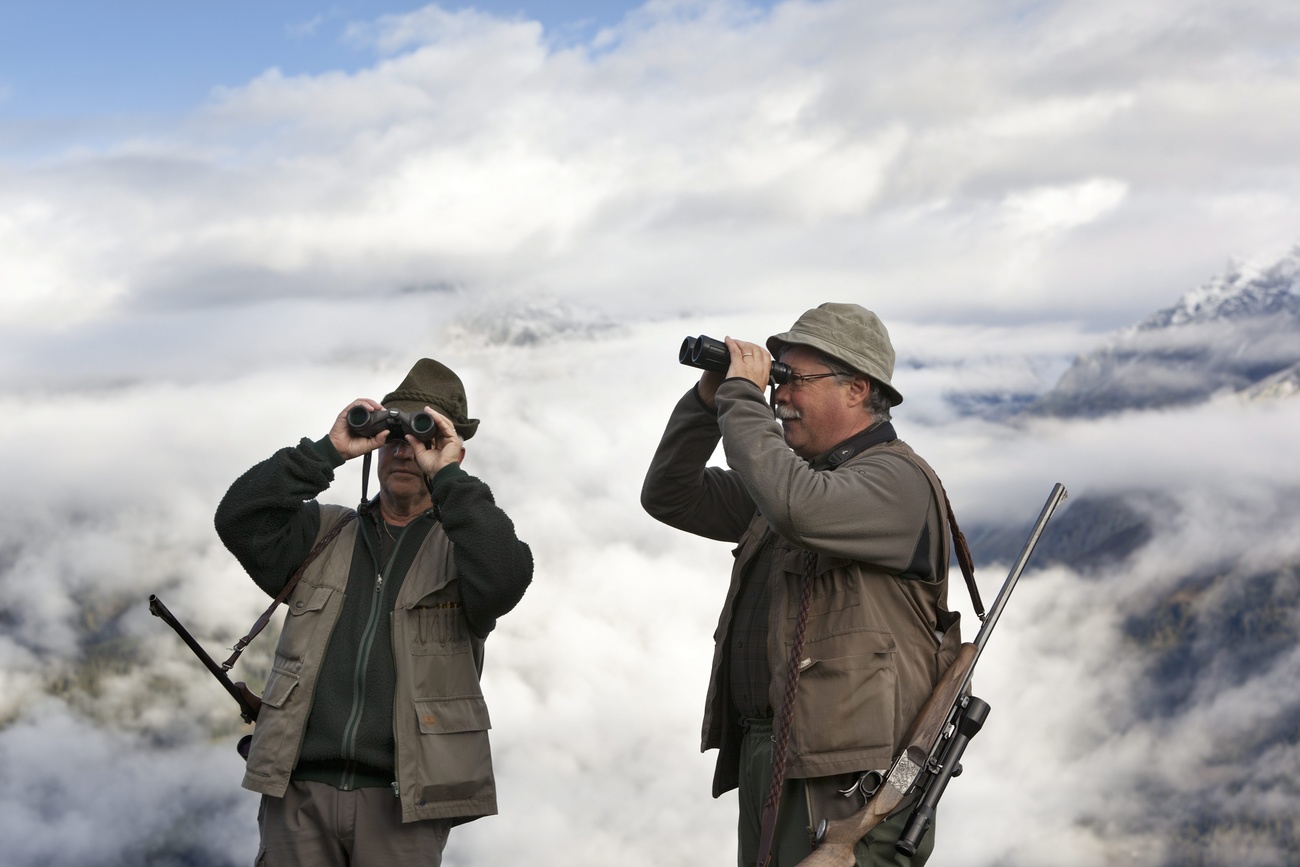Law paves way for ‘coexistence between wolves and humans’
The reform of the hunting law is aimed at boosting biodiversity and serves as a legal basis to deal with the growing wolf population, says Stefan Engler. The senator and representative of the centrist Christian Democratic Party explains why he recommends voter approve the reform in a nationwide on September 27.
The current hunting law dates back to 1985 but things have changed considerably since then. Protected species such as wolves and beavers have made a comeback in recent years, which is a positive sign for Switzerland’s nature and biodiversity.
The increasing wolf population, however, has led to more conflicts with farmers, the tourism industry and the locals. No doubt there is a need to revise the hunting law to meet the changes in the wildlife population and guarantee the protection of humans and animals.
The revised hunting law aims at providing better protection to wild animals and their habitats. At the same time, it offers a pragmatic solution to deal with the wolf which returned to Switzerland in 1995.
The number of wolves has risen continuously over the years, and in 2019 approximately 80 wolves were roaming around the country. Some of them attack sheep and goats killing between 300 and 500 animals every year.
Fences or livestock guarding dogs do not seem to stop them. Wolves easily learn how to get around these protective measures and some no longer shy away from human settlements. The revised hunting law aims to alleviate conflicts arising from the ever-increasing wolf population.
Nature protection
The revised act includes improvements for the protection of wildlife and their habitats. The law paves the way for additional state funding for nature reserves and protected areas that serve as refuge for animals as well as wildlife corridors.
About 300 trails connecting different zones across Switzerland will be excluded from development in a bid to preserve wildlife.
Special bridges and underpasses will be built by the national and cantonal authorities so the animals can move safely between the protected areas, avoiding railway lines and roads.
The Swiss government also pays towards improving the about 80 national reservations and bird sanctuaries. Under the new regulations, the hunting of 12 wild duck species will be banned and while the closed season for hunting the woodcock will be extended.
The new law requires the cantonal authorities and farmers to build special fences to prevent wildlife from accidents and injuries as much as possible.
These measures help boost biodiversity, conserve the natural habitat of wildlife and protect nature.

More
Reform seeks to protect wildlife and Alpine farming
Pragmatic solutions
The legal amendments enable the cantonal authorities to regulate the number of wolves even before they cause injury to sheep and goats. However, the wolf remains a protected species in Switzerland.
These new rules are meant to scare the predators away from humans and their settlements, limit the number of wolf attacks on livestock and reduce conflicts between the parties involved.
The law gives the cantonal authorities the power to regulate protected species as they know best where the wolf populations live and roam.
They support herd protection and are in contact with affected farmers. It is the task of cantonal rangers to cull wolves if necessary.
Game keepers only get involved if measures to control damage are no longer sufficient.
The cantons are obliged to exhaust all given measures before they intervene.
Experience shows that it is almost impossible to stop wolves from killing sheep and goats simply by taking prevention measures. Wolves learn quickly to bypass herd protection such as fences and guarding dogs. To make sure wolves keep their fear of human settlements and protective measures, killings may be necessary to uphold effective herd protection.
It is of utmost importance to keep ecological livestock farming in our mountain valleys, which means farmers have to take suitable measures wherever possible.
But it is for hunters to find ways to deal with these new predators in the given circumstances.
The reform creates a solid legal basis for long-term coexistence for man and wolf. It deserves our approval. With conviction, I say yes to the new hunting law.
Translated from German by Billi Bierling
The views expressed in this article are solely those of the author, and do not necessarily reflect the views of swissinfo.ch.

More
No to a hunting law which allows ‘firing at will’
Traduzione dal tedesco

In compliance with the JTI standards
More: SWI swissinfo.ch certified by the Journalism Trust Initiative